North Greenford United spent six seasons as members of the Southern League from 2010/11 until 2015/16 after winning the Combined Counties League title.
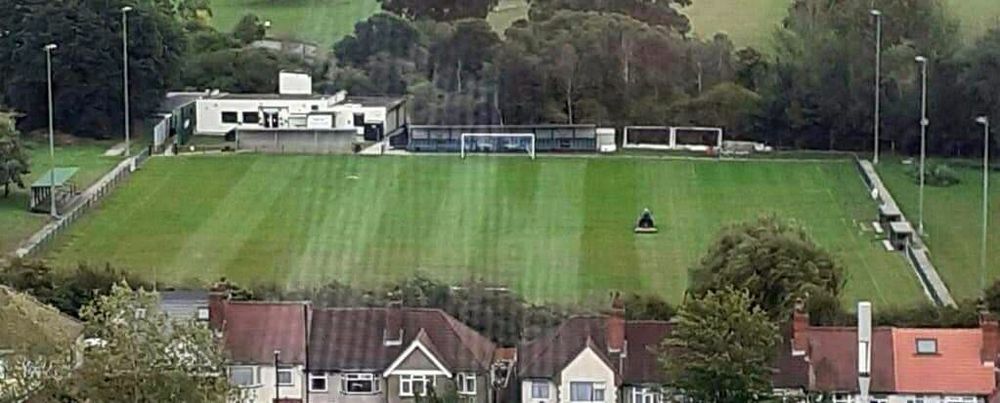
North Greenford United
The club was founded in September 1944 initially as a youth team. The following season saw the formation of a senior side with the club entering the Harrow League and later the Middlesex County League.
In 1983 the club was promoted to the Spartan League but in 1994 it resigned to re-join the Middlesex League.
Keen to regain Senior Status, ground improvements were undertaken, including the installation of floodlights, and in 2002 the club was elected to the Combined Counties League.
In 2003/04, managed by Steve Hawkins, the club were runners up in the Premier Challenge Cup losing 4-1 to AFC Wimbledon in front of a crowd of over 5,000 at Woking`s Kingfield.
In 2004/05 the club finished league runners-up and in 2006/07, under Mick Harvey lost 4-1 to Merstham in the League Cup final.
Steve Ringrose took over the manager’s job at the beginning of season 2008/09 and in his first season, led the team to second place in the Premier Division with the club finishing runners-up to Bedfont Green.
Season 2009/10 proved the most successful in the club’s history when they became Combined Counties champions, earning promotion to the Southern League`s newly formed Division One Central, as well as winning the MFA Charity Cup beating Enfield Town 1-0 at Hampton & Richmond Borough’s Beveree ground in front of a big crowd.
Despite having a difficult first season at the higher level, the team succeeded in retaining its Step 4 status. However, despite notable cup successes, the first half of season 2011/12 saw the club struggling in the league.
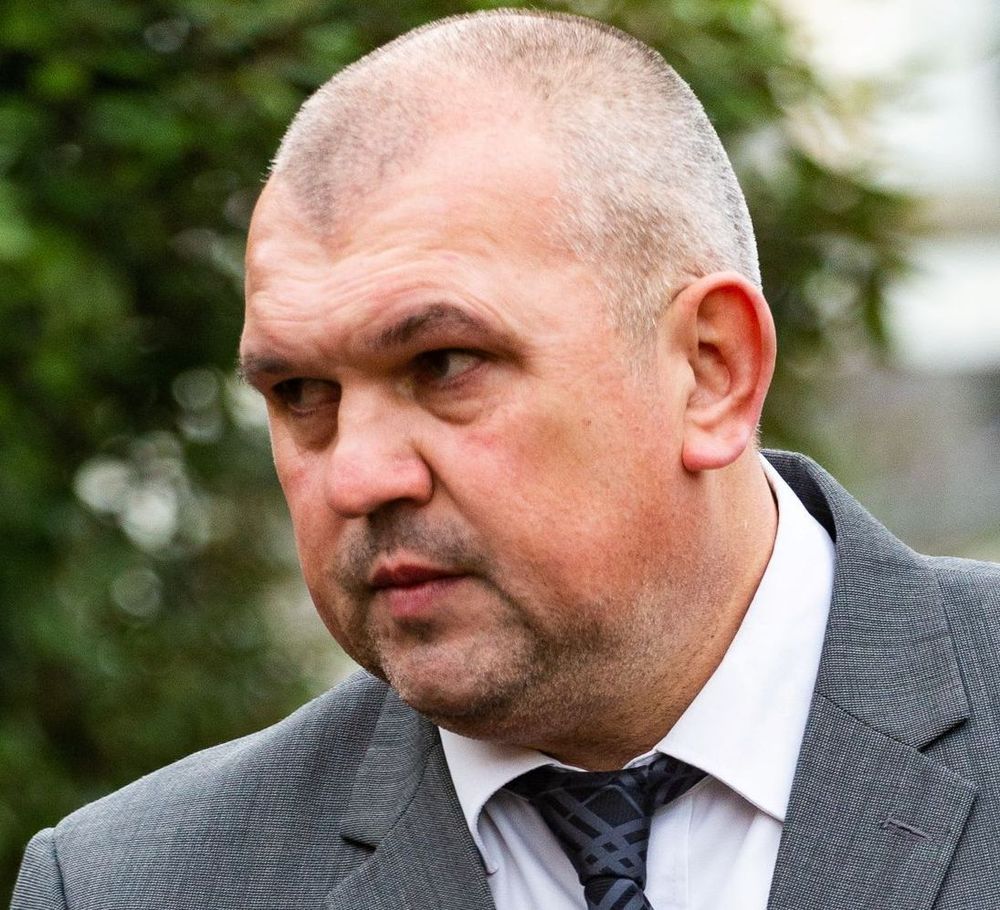
Neil Shipperley
Former Chelsea, Southampton and Crystal Palace striker Neil Shipperley replaced Ringrose in December 2011 and he managed to successfully steer the side away from the threat of relegation.
Experiencing an even more difficult time at the start of season 2012/13, Shipperley returned for a second spell in charge, replacing Jon-Barrie Bates.
However, the team continued to struggle and, having lost 14 league matches on the trot, North Greenford`s only consolation was that Woodford United had still failed to notch up a single point!
North Greenford`s campaign that year was saved by an amazing end-of-season run which saw the team finish just above the relegation places.
They were hoping to continue where they left off at the start of the following season but, again after decent cup runs, they struggled in the league and narrowly escaped the drop after crucial wins against our two fellow relegation contenders, Chertsey Town and Ashford Town (Middx).
Reserve team manager Paul Palmer, assisted by Don Bennett, replaced Shipperley following his resignation midway through the season.
Following an indifferent start to the 2014/15 campaign it was decided to part company with Palmer and ask Bennett to take over.
Results though did not improve and in December 2014, Bennett tendered his resignation.
Reserve manager Barry Morris took over assisted by coaches George Bouhet and Fitzroy McLeod and, after an initial struggle another impressive end-of-season run saw the team finish 4 points clear of bottom club AFC Hayes and were granted a reprieve by the FA.
Morris and his team were re-appointed for the following campaign, but in September, he resigned and Bouhet took over.
Unfortunately, poor results again left the club rooted at the bottom of the table, and in November 2015 the committee appointed two ex-Greenford players – Ricky Pither and Danny Bennell – as joint managers to replace Bouhet.
Despite some promising performances, results still did not improve and four wins and six draws were not enough to secure the points needed to avoid the drop and North Greenford finished 11 points behind second-from-bottom Leighton Town.
On this occasion, however, there was to be no chance of another reprieve and they were offered a place in the Combined Counties Premier Division after successfully appealing against an FA decision to place the club in the Hellenic League and, with their wide knowledge of local clubs and players, Pither and was invited to continue in his role, with Mark Chandler taking over as joint manager following Bennell’s resignation.
But, due to poor league results which left the club languishing at the foot of the CCL Premier Division table, the club`s committee decided to part company with Pither and Chandler at the beginning of October 2016 and the experienced management team of Danny Vincent and Colin Murphy were appointed and were duly appointed.
Since then, North Greenford, after finishing 13th in successive CCL Premier Division seasons, were switched to the Spartan South Midlands League Premier Division ahead of the 2018/19 season and they finished 16th in what has proven to be their only completed season in their new surroundings due to the pandemic.
North Greenford`s neighbours Northwood re-joined the Southern League family at the same time.
However, in the Woods case, they were switched from the Isthmian League Division One North as part of the latest FA`s restructuring efforts – and it was the second time the `powers that be` moved them from the Isthmian to the Southern.
That came in 2005/06 after Woods had just completed their second season in the Isthmian Premier.
A club in the Northwood area was established in 1899. However, Northwood, as they are today, were not believed to have been formed until 1926.
Their early history is rather sketchy, and it is unclear what leagues they played in until 1931, when they joined the Harrow & Wembley League.
They spent a number of years known as Northwood United and then after the Second World War, with the disappearance of the Holy Trinity Northwood team, the club dropped the `United` suffix from their title, and were Harrow & Wembley champions in consecutive years, 1948 and 1949.
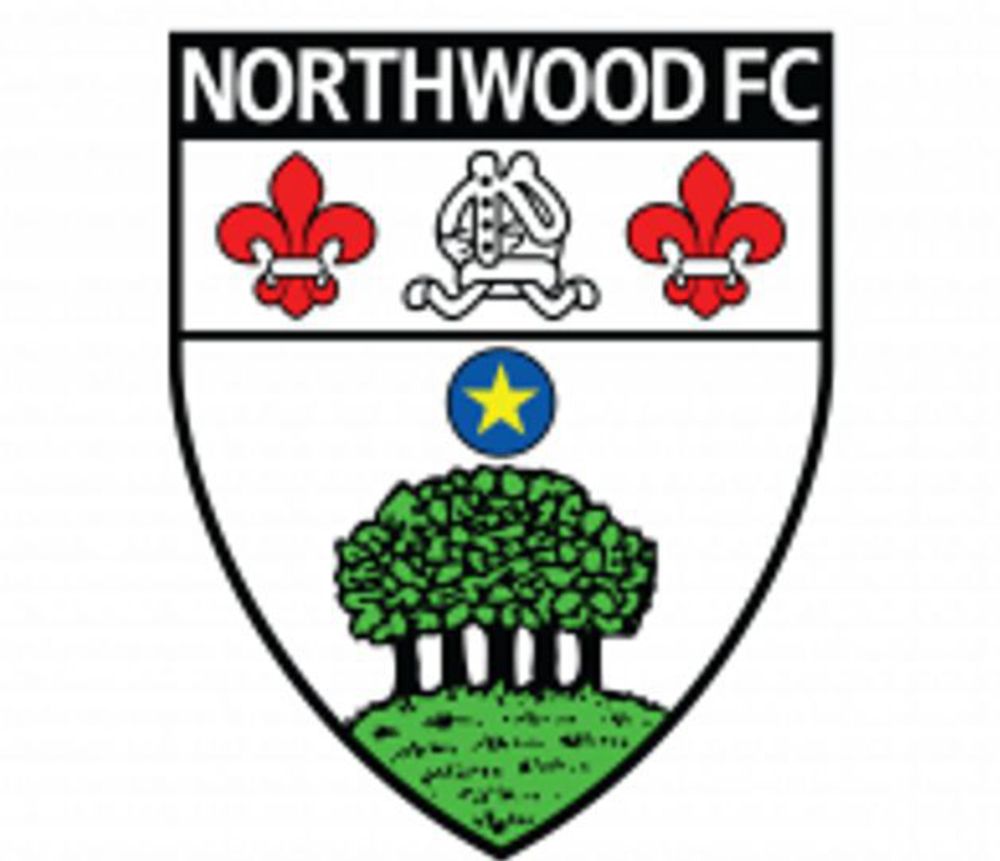
After being a mid-table side in the Premier Division throughout the 1950s, the club hit a slump in the early 1960s, suffering a first-ever relegation in 1962, and they became something of a yo-yo side for a few years, but towards the end of the 1960s things improved and Northwood were elected to the Middlesex League in 1970, and became runners-up at the end of their second season.
The Woods won the Middlesex League Cup on three occasions and also the league championship in 1978, completing the Middlesex League `double`, and the club were subsequently elected to the Hellenic League.
In the first season they were promoted to the top-flight as Division One champions and Hellenic League Division One Cup winners.
Northwood also lifted the Middlesex Intermediate Cup by beating Feltham 2-1 – the club’s first County Cup success for 41 years.
Floodlights were erected and senior status was granted in 1981 and then in 1984, Woods switched to the London Spartan League Premier Division.
Mid-table finishes followed until 1988/89 when Woods completed a now called Spartan South Midlands League and cup `double` in 1992 and along with this success came considerable ground improvements, which allowed them to be promoted to the Isthmian League Division Three.
The club spent five seasons in Division Three and then in 2002/03, after being moved to the new Division One North, Woods took to their new section and won the title by a point from current Buildbase FA Trophy finalists Hornchurch, scoring 109 goals in 46 games.
Woods finished 21st out of 24 in their first season in the Isthmian Premier Division and 17th in their second.
However, a major re-structuring by the FA saw Northwood face a new challenge for the 2005/06 campaign, having been moved to the Southern League Premier Division, and although the first season in the new league was a struggle, the team avoided the drop on the final day.
However, 2007 saw the Woods finish in 22nd place in the division, and relegation followed – the first time the club had faced demotion in senior football.
Having been moved back to the Isthmian League for the 2007/08 campaign, and after spending three years in Division One North, Northwood then found themselves competing in the Southern League Division One Central from 2010.
The club were fortunate to avoid relegation in their first season back in the Southern League – only the demise of one or two others saved them – but the following campaign saw them finish a creditable seventh under Mark Burgess`s management.
Ninth and seventh again were achieved in 2013/14 and 2015/16 respectively before two indifferent seasons followed.
And the club were moved back once more to the Isthmian League prior to the 2018/19 season where they finished tenth before the next two campaigns were declared null and void.
In May 2009, more than 50 years of footballing history came to an end after Oldbury United announced they were to close.
Committee members made the difficult decision during an emotional meeting at Tividale’s Packwood Road ground - the Crickett’s home for the previous 12 months.
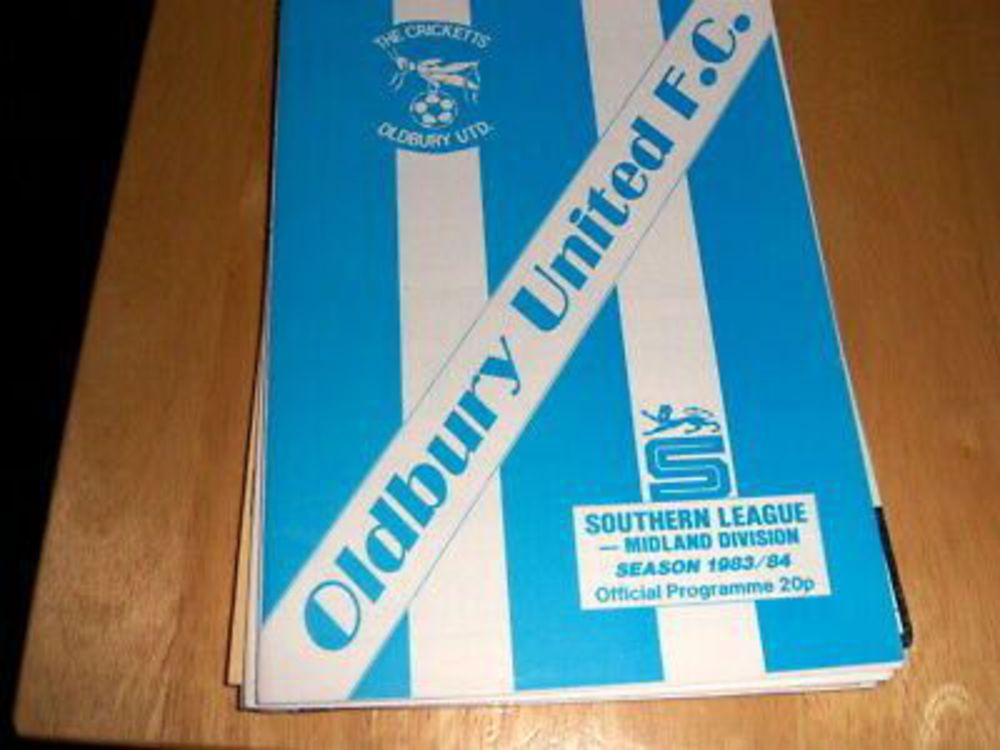
The decision marked the end of a turbulent two years for the club both on and off the pitch since they were evicted from their York Road ground by members of the site’s social club in May 2007.
Struggling for funds and players, the club finished the 2008/09 season rock bottom of the Midland Alliance.
Oldbury were founded in 1958 and played in the Worcestershire Combination until 1967/68 when they switched to the Midland Combination.
They finished as runners-up in 1971/72 and again in 1978/79 before, in 1982/83, Oldbury were one of ten new clubs elected to the expanded Southern League.
Their first season at the higher level under Mal Lycett saw the Cricketts finish a very creditable sixth out of 17 teams.
Lycett departed and was replaced by former Birmingham City and Walsall defender Dave Robinson, who had been player-manager of Tamworth.
But, even with the emerging talents of Colin Gordon in attack – he went on to play for the likes of Swindon Town, Birmingham and Leicester City – Oldbury struggled to compete financially with poor crowds and finished bottom of the table in 1985/86.
They were placed in the West Midlands (Regional) League and competed well, winning the title in in 1993, and then becoming founder members of the Midland Alliance the next season.
Following their eviction from York Road, Oldbury led a nomadic existence during the 2007/08 season, playing as far afield as Pelsall Villa before eventually striking a deal to stay at Tividale.
Committee members and supporters` group, the `Friends of Oldbury United` began a legal campaign to try and force a return to York Road but revealed they needed to raise £40,000 to take the case to court.
The club kept the Oldbury United name registered with the FA and in 2017, the club was reformed, joining Division Two of the West Midlands (Regional) League.
However, after completing just one full season, they again called it a day at that level during the 2018/19 campaign.
Oldbury United remains, but now as a mostly community youth club with an adult team in the local Birmingham & District League`s Division Six!
Oswestry Town had four seasons in the Southern League Division One North between 1975 and 1979.
Oswestry Town were formed in the late 1880s and, despite being from Shropshire, were Welsh Cup semi-finalists in 1986/87.
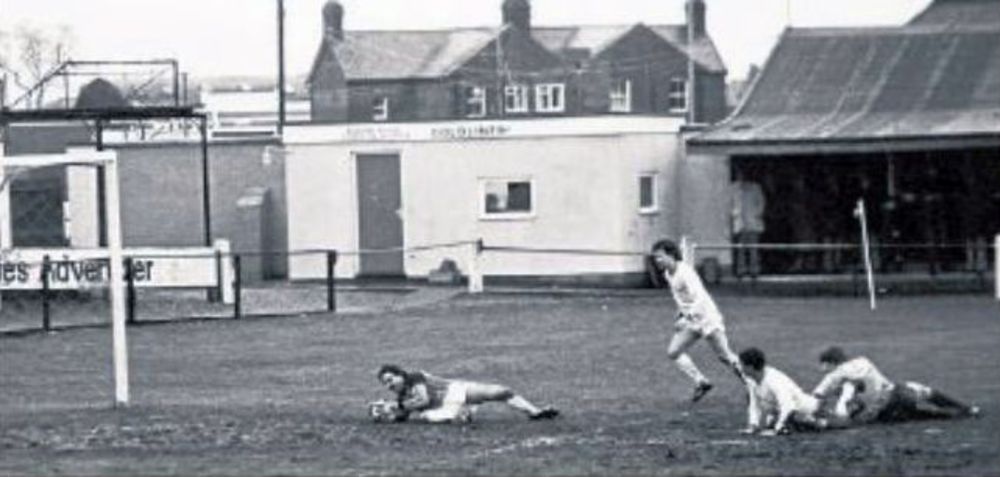
They were in the Shropshire League until they joined the Birmingham League in 1924 and were eventually crowned champions in 1952/53 but they switched to the Cheshire County League in 1959.
Then, in 1975, despite having only finished tenth in the Cheshire League, Oswestry were elected to the Southern League, who had a vacancy due to Stevenage Athletic folding.
Dick Jones, who was well known in Cheshire and North Wales circles and was in charge of the club in the 1964/65 season, was back in charge and Town enjoyed a great start in the Southern Division One North, having been in the top four and had a 100% home league record.
At the time of his resignation in November - he left due to financial pressure with the club needing to get four-figure gates to finance the team - Dave Pountney the former Aston Villa and Shrewsbury Town man, took over until April, when he was replaced by Alan Boswell, the ex-Wolves and Shrewsbury goalkeeper who was to lead Town into the 1976/77 season.
He in turn was replaced by January 1977 by former Wrexham man Idris Pryce, who held the job until January 1978.
Alan Ball Snr, father of the England World Cup winner of the same name, stepped in for the second time between managers to help coach the squad.
He had been in charge previously back in 1954 until 1957.
In March 1978 the club appointed ex-England, Bolton Wanderers and Manchester City man Freddie Hill, who brought in some fine players and Oswestry were amongst the leading pack in the Southern League for most of the 1978/79 season.
They eventually finished sixth but above the likes of Gloucester City, Burton Albion, Bromsgrove Rovers and Corby Town, who finished bottom with only 16 points.
And Hill was still in charge to take the club forward to new pastures, the Northern Premier League in season 1979/80, but it came as a surprise to fans when he decided to leave the club because he was unwilling to work under legendary former Liecester City centre-forward Arthur Rowley, who the Board had made general manager with a say in first team selection.
Oswestry limped along in the NPL, never finishing above 13th in the table until April 1988 - a date that will live long in the memory of many Oswestry fans.
Over 130 years of footballing history in the town came to an end when they played their final game at the historic Victoria Road ground.
The club had been struggling financially for some seasons prior to 1987/88 and, in a bid to turn around their fortunes, sold off the ground - which was by now in need of a major upgrade - to housing developers.
The club folded but reformed in 1993 playing in the Welsh National League (Wrexham Area).
They played in the League of Wales from 2000 to 2003, at Park Hall, and in 2003 merged with Total Network Solutions and in 2006 the merged club was re-named as The New Saints, who are now one of the most successful nom-League teams in the Principality.
Oxford City have a long and proud history and in its early days, were one of the best amateur teams in the country.
Formed in 1882, they were FA Amateur Cup finalists in 1902/03 when they lost 1-0 to Stockton at Darlington after a 0-0 draw at Reading in the first leg, in 1905/06 when they triumphed over the powerful Bishop Auckland 3-0 in the second leg after winning the first 4-2, and again in 1912/13 when they lost to another Northern League outfit, South Bank., again 1-0 after drawing 1-1 at Elm Park.
Then in 1994/95, City made it to Wembley in the FA Vase final but once again ended up with runners-up medals after losing 2-1 to South Midlands League outfit Arlesey Town.
City joined the Isthmian League back in 1907 and although league honours evaded them, they did have some high-profile people involved with the club, most famously in 1979 when it became a limited company and a year later when the legendary Bobby Moore was appointed manager with his former West Ham United team-mate Harry Redknapp as his assistant.
But in May 1988, City were evicted from their previous home, the White House Ground, when the directors were deemed to have contravened the terms of lease.
They were forced to withdraw from the Isthmian League and all competitions.
All the directors resigned, but a few people got together in an effort to keep the club alive.
A local petition - eventually signed by 14,000 people - urged Oxford City Council to find the club a new home.
Fund-raising enabled the club to pay off all debts incurred through having to withdraw from all competitions for the 1988/89 season.
In 1989, using pitches hired from the council, the new committee decided to enter a team in the Oxfordshire Youth League.
In 1990, City decided to enter a senior side in the South Midlands League Division One using council facilities at Cutteslowe Park.
Committee members guaranteed the cost of pitch hire, referees and kit, and with former Oxford United favourite Peter Foley as their manager, the team was promoted at the end of their first season.
The league ruled, at the start of the 1991/92 season, that facilities at Cutteslowe Park were inadequate for the South Midlands Premier Division and the club had to move again - this time to Romanway at Cowley where, before the league would accept the facility, members of the club had to obtain, erect and paint a full perimeter fence.
The first team were crowned 1992/93 champions of the South Midlands Premier Division and, with it, promotion back into the Isthmian League if a suitable home ground could be found.
After many public meetings and council meetings, a site for a new stadium at Marston was made available.
With money received from Oxford City Council (in return for planning gained for the former ground) and help from the Sports Council, it was a race against time to build it in only eight weeks to meet the league’s deadline.
With council employees, numerous contractors and members of the club working in harmony alongside each other, the deadline was somehow achieved.
The 1993/94 season saw the ground officially opened in front of 1,800 spectators when City upstaged their football league neighbours Oxford United 3-1.
At the end of the season, the first team won promotion from the Isthmian Division Three to Division Two where they finished third and won a place in Division One.
In 1995/96, City won the title but spent only two seasons at that level before finding themselves bottom in 1997/98 – 9 points adrift of second-from-bottom Hitchin Town.
City spent the next six seasons in Division One before being one of a number of Isthmian League sides who were switched into the Southern League after a major re-structuring of the non-League Pyramid in 2004.
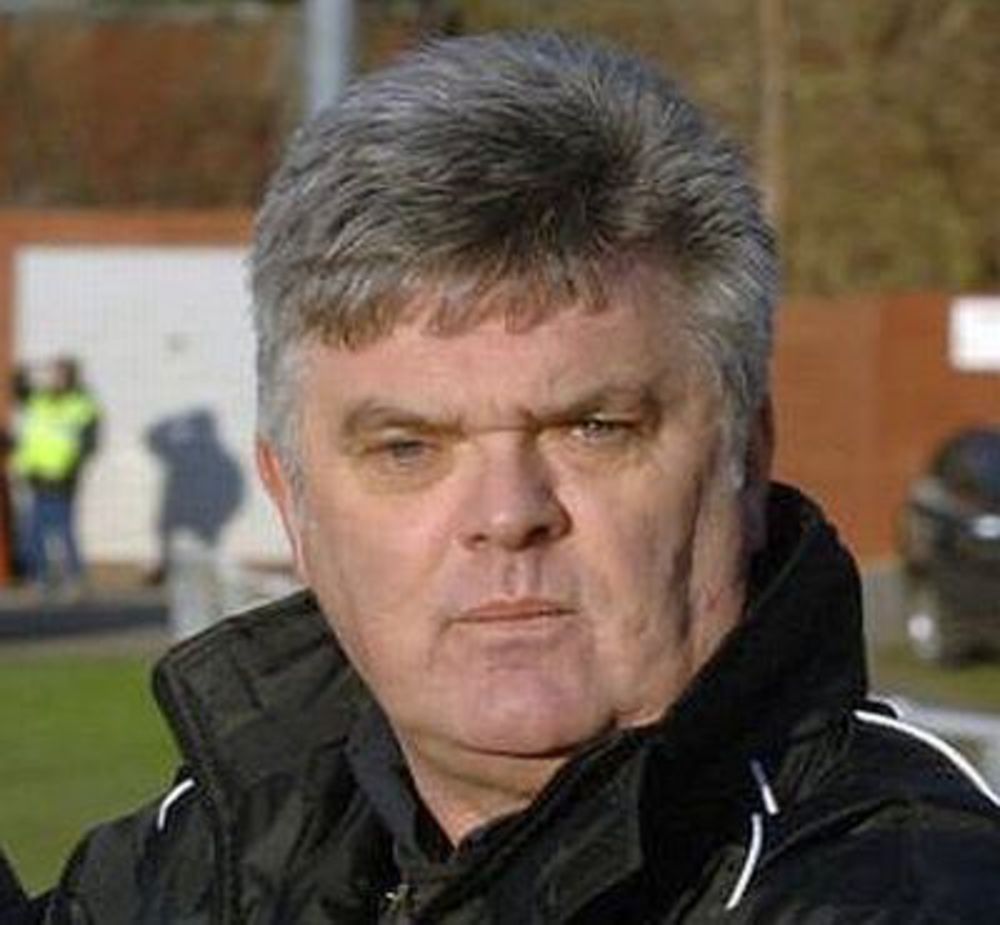
Andy Lyne
Placed in Division One West, they struggled under former player Andy Sinnott and finished second-from-bottom and were relegated back to the now Spartan South Midlands League but were promoted straight back at the first time of asking under new manager Andy Lyne, winning both the championship and the Premier Cup.
In November 2006 Lyne resigned as manager to become the club's director of football and was succeeded by Justin Merritt as player-manager with former Oxford United player Mike Ford as his assistant.
Merritt subsequently stepped down in August 2009 and Ford took over as manager and in May 2008, City were promoted from the Southern League Division One South & West with a 1–0 win over Uxbridge.
In their first season in the Premier Division, they finished in sixth place, narrowly missing out on the play-offs by 3 points.
After finishes of 13th and 14th, in 2011/12 City finished runners-up after narrowly missing out on the title which went to Brackley Town.
That meant a nervy play-off campaign to reach the highest level in the club`s history.
A hard-fought 1-0 win over fifth-placed Cambridge City was followed by a 4-2 play-off final victory against AFC Totton to gain promotion to Conference North where they have remained ever since.

Most clubs are looking for volunteers. Find out more on the button below:
www.PitchingInVolunteers.co.ukAll the news and results in one place.
REGISTER